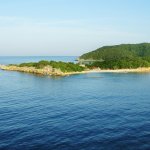Discovery Day in Haiti and the Dominican Republic Date in the current year: December 5, 2026
 Haiti and the Dominican Republic celebrate Discovery Day on December 5 every year. Although not a public holiday, it is important for both countries. Discovery Day commemorates the day when Christopher Columbus landed on the island of Hispaniola in 1492.
Haiti and the Dominican Republic celebrate Discovery Day on December 5 every year. Although not a public holiday, it is important for both countries. Discovery Day commemorates the day when Christopher Columbus landed on the island of Hispaniola in 1492.Hispaniola is the second largest island in the Greater Antilles archipelago after Cuba, as well as the most populous island in the Caribbean and the world’s 11th most populous island. Alongside Cuba and Hispaniola, the archipelago includes Puerto Rico, Jamaica, and the Cayman Islands.
Hispaniola was discovered by Christopher Columbus in December 1492, when his flagship Santa Maria wrecked and sank near the present-day site of Cap-Haïtien, Haiti. Columbus took possession of the island and named it La Isla Española (“the Spanish Island”). The name was subsequently shortened to Española, and then latinized as Hispaniola.
Columbus and his men used the timbers from Santa Maria to build a fort which was named La Navidad (Christmas). Having left a contingent of men at the newly build outpost, Columbus sailed back to Europe. On his return to Hispaniola the following year, Columbus discovered that La Navidad had been destroyed by the local population, so he quickly established as second compound and christened it La Isabela. While La Navidad was situated in what is today Haiti, La Navidad was located in the present-day Dominican Republic.
In 1664, the French began to colonize Hispaniola, too. They founded the colony of Saint-Domingue in the western part of the island. Following a series of territorial conflicts, Spain and France officially divided the island in two. According to the 1697 Treaty of Ryswick, the western third of the island became French, and the rest belonged to Spain.
Following the outbreak of the French Revolution, self-liberated slaves initiated a revolt against French colonial rule in Saint-Domingue. It evolved into a full-fledged revolution that ended in 1804 with the proclamation of Haitian independence. Meanwhile, Spain began to lose hold over its part of the island. In 1821, the Spanish Lieutenant Governor proclaimed the independence of Spanish Haiti, but mere weeks later, it was invaded and occupied by the Republic of Haiti.
After more than two decades of Haitian occupation, the Dominican Republic declared its independence in 1844. Ever since then, the island of Hispaniola has been divided between two sovereign nations, the French-Creole speaking Republic of Haiti to the west, and the Spanish-speaking Dominican Republic to the east.
Relations between the Dominican Republic and Haiti are complex because of the substantial cultural differences, Haitian occupation of Spanish Santo Domingo, and the wide gap between the two countries’ economies. Haiti is significantly poorer than its neighbor, which has led to illegal immigration from Haiti to the Dominican Republic.
Despite tension between the Dominican Republic and Haiti, both countries celebrate Discovery Day to mark the day when Christopher Columbus discovered Hispaniola. Although not a public holiday, its is marked with various events and activities.
- Category
- Anniversaries and Memorial Days
- Country
- Haiti, Dominican Republic
- Tags
- discovery day in haiti, discovery day in dominican republic, christopher columbus, hispaniola, discovery anniversary